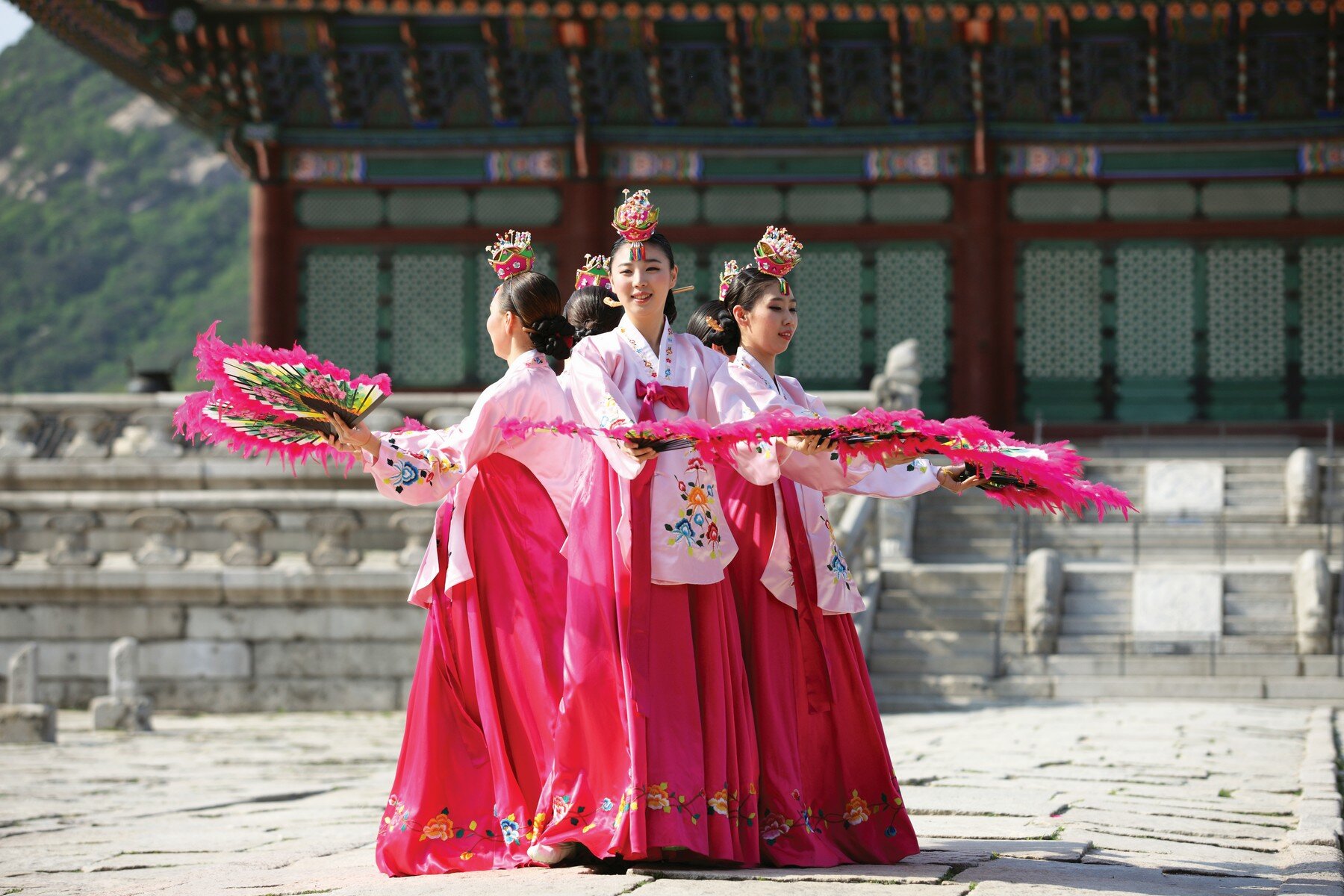Asian culture has always been a blind spot for me, so I decided I would pursue an Asian country that would pique my interest while also having an intriguing social/civic circumstance. With some quick Google searches, I found that South Korea has a unique culture that, for many around the world, is greatly celebrated online. The curiosity of Korea’s separation to North and South intrigued me more, which led me to the Korean War and its modern-day implications. South Korea’s conflict with North Korea continues to this day, but its culture lives on despite the tension.

Image From National Geographic Society
As many know, the Korean War was devastatingly fought during the Cold War. The main conflict was between the United States (plus the United Nations) and the USSR (plus China) fighting over communism. Up until WWII, Japan colonized Korea, leading to its division among the super-countries. With the political differences came violent clashes in an attempt for one party to overtake the other. The war eventually ended in an armistice in 1953, after three years of fighting. Now, North Korea has a lot of division with its lower half. According to the Human Rights Watch, strict military borders are placed between the two countries, with border guard orders to “shoot on sight.” Furthermore, when someone can escape the north to the south, they are often referred to as “defectors,” which can create a harmful separation between individuals. Through one man’s testimony, his relative is scared to leave North Korea for fear of a social environment based on escaped North Koreans. According to the BBC World Service, 91% of South Koreans held North Koreans in a negative view, the highest for South Korea since 2006. This harmful statistic unfortunately describes the relations between North and South Korea too well.

Image From France 24
Even with the tensions that South Korea holds, its culture has been sustained for millennia. The primary aspects of Korean culture, according to the Association for Asian Studies, is through its spiritual connections, with much of the country being Christian or Buddhist, and much of the culture being rooted in Shamanism or Confucian philosophy. A beautiful part of South Korea’s culture, in my opinion, is their architecture. A traditional Korean hanok is a small house made locally with a spiritual connection to nature. In its architecture, South Korea is very similar to other Asian design.

Traditional Hanok, Image From Gateway Korea Foundation
Besides South Korea’s architecture culture, its food and customs are very welcoming. Popular foods include kimchi (salted and fermented vegetables served with rice), bibimbap (warm rice with numerous topping), Korean stew (meat with vegetables and spices), samgyeopsal (pork belly/ribs), and many more delicious options. More important than food is the value placed on customs and manners in South Korea. Important manners of respect include slight bowing to greet people, removing shoes for entering homes, and removing hats indoors. It is also important to respect elders. The customs and food in South Korea should not be overlooked, as they help to bring community and tradition together.
Looking in on the country as an outsider, South Korea’s conflict with North Korea can cause serious harm and division in the country which is why its culture is so important. The Korean War created harmful separation in addition to the continuous separation through strict borders and media coverage on both sides of the border. Architecture in South Korea, however, connects its spiritual culture to its people, while food is a common ground accompanied by respectful customs. The unique traditions in South Korea interest me enough to want to discover more about the culture; hopefully one day I can visit this country and experience its culture myself.

Buchaechum Dance, Image From Korean Cultural Center NY
This was a great blog. I appreciate your addition of the historical context to the country and culture. You did not glamorize what the country has gone through but still highlighted its culture. I think it is so cool you want to learn more about Asian culture. I look forward to what you write next.
Once again a great blog post. I enjoyed how you covered many different topics while also explaining South Korea’s rich history. I have not read much about their culture, but now an interested to learn more!